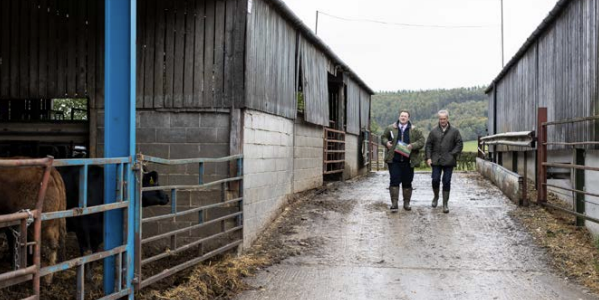Advice for farms and rural estates in relation to coronavirus outbreak
Our land management and farming teams are working to provide clients with advice and support as they deal with the consequences of the coronavirus outbreak.
Here are some thoughts from the team on how rural businesses can work safely, support their local community and stay positive.
Please do let us know what you are doing that we can share.
Well-being
1. It’s good to talk. More regular communication – whether by phone, text or video – will help people adjust to the situation and reduce worries and isolation. A daily check in with friends, neighbours and employees, particularly those who live by themselves, will help people stay connected.
2. Property owners should consider writing a list of vulnerable or elderly occupants in their properties and have appropriate plans in place in case needed. This might involve help with shopping or additional challenges or simply checking that they are alright.
3. To keep the rural economy working – consider whether maintenance and building work that supports local contractors can continue. Can external painting and maintenance be brought forward, enabling people to keep working while at the same time meeting social distancing guidelines? We are aware of some contractors seeking opportunities to work on vacant properties and offering discounts to secure this type of work.
Good management
4. Some farms are already short of labour for lambing and there is concern that travel restrictions will lead to serious difficulties for those businesses reliant on seasonal migrant labour. There are likely to be plenty of people in your local communities needing work, so consider employing them to help where appropriate.
5. Many tenants, both in houses and commercial property, will be under financial pressure. Create a ‘hardship application form’ so there is a process in place to consider any requests they may make in terms of rents etc. It may also help the tenants if they apply for any government support.
6. Businesses should stress-test budgets for a range of scenarios, including changes to income and expenditure from in-hand enterprises and rental property.
7. Use a safe working protocol for any work needed in properties, so occupants and contractors are as safe as possible.
8. Speak to lenders to discuss what the options are if loan repayments are not possible. We know that some lenders are being very pragmatic and understanding.
9. Business owners, landlords and tenants should check insurance policies to see what, if any, cover there is for COVID-related losses.
We have developed a range of forms and protocols, so please contact your local office to discuss them.






